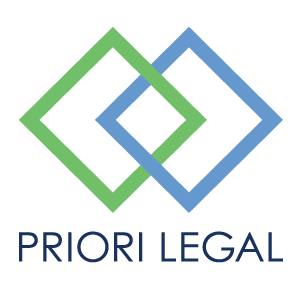Becoming a freelance lawyer is an appealing option for many legal professionals seeking greater control over their work-life balance, income, and legal work. This article will guide you on becoming a freelance lawyer, covering everything from education and licensing requirements to finding clients and setting rates.
Table of Contents
- Introduction
- What is a Freelance Lawyer?
- Education Requirements to Become a Freelance Lawyer
- Licensing Requirements to Become a Freelance Lawyer
- The Benefits of Becoming a Freelance Lawyer
- How to Find Clients as a Freelance Lawyer
- Setting Your Rates as a Freelance Lawyer
- Working with Clients as a Freelance Lawyer
- Conclusion
- FAQs
Introduction
Freelancing is becoming an increasingly popular career path, and it’s no different in the legal industry. Freelance lawyers are legal professionals who work on a project basis for law firms, corporations, personnel or other lawyers.
Freelance lawyers enjoy greater flexibility and control over their work-life balance, as they can choose the projects they work on and their clients. Additionally, freelance lawyers often earn higher hourly rates than traditional associates.
What is a Freelance Lawyer?
A freelance lawyer provides legal services to law firms, corporations, personnel or other lawyers on a project-by-project basis. Freelance lawyers are also known as contract lawyers, temporary lawyers, or project-based lawyers.
Education Requirements to Become a Freelance Lawyer
To become a freelance lawyer, you must complete the education requirements to become a licensed attorney. This typically involves earning a bachelor’s degree and attending law school.
Licensing Requirements to Become a Freelance Lawyer
Once you’ve completed your education requirements, you must obtain a law license to practice law in your state. The specific licensing requirements vary from state to state, so it’s essential to research the requirements in your state.
The Benefits of Becoming a Freelance Lawyer
Becoming a freelance lawyer comes with many benefits. Freelance lawyers have greater control over their work-life balance, as they can choose the projects they work on and the clients they work with. Additionally, freelance lawyers often earn higher hourly rates than traditional associates.
How to Find Clients as a Freelance Lawyer
As a freelance lawyer, finding clients can be challenging. However, there are several strategies you can use to find clients and build a successful freelance practice.
Finding Clients Directly
One strategy is to find clients directly. You can do this by networking with other lawyers, attending legal industry events, and leveraging your professional network.
Using Freelance Platforms
Another strategy is to use freelance platforms. These platforms connect freelance lawyers with potential clients and often provide tools and resources to help you manage your freelance practice. Examples of freelance platforms for lawyers include Upwork, Fiverr, LAWCLERK, UpCounsel, and Hire an Esquire or any other suitable sites.
Setting Your Rates as a Freelance Lawyer
Determining your rates as a freelance lawyer can be challenging. Factors to consider when setting your rates include your experience, the type of legal work you do, and the market demand for your services. Researching the going rates for freelance lawyers in your area and adjusting your rates accordingly is essential.
Working with Clients as a Freelance Lawyer
When working with clients as a freelance lawyers, it’s essential to establish clear and effective communication to ensure a successful working relationship. Here are some key aspects to consider:
1. Developing a Written Agreement
Before starting any project, it’s essential to have a written agreement in place with the hiring attorney or firm. This agreement should outline the scope of work, agreed-upon compensation, deadlines, and any other relevant terms and conditions. If you’re using a freelance lawyer platform, they may provide a built-in agreement, but reviewing and ensuring you’re covered is still crucial.
2. Using Technology to Improve Collaboration
Technology is vital in facilitating seamless collaboration between freelance lawyers and their clients. Discuss with the law firm or attorney if you can have access to tools such as practice management software or communication apps to enhance efficiency and streamline the workflow. Utilizing these tools can help ensure smooth communication and effective project management.
3. Building Strong Relationships with Clients and Colleagues
Building strong relationships is crucial to success as a freelance lawyer. Providing high-quality work, meeting deadlines, and maintaining open and professional communication with clients is essential. A positive working relationship can lead to repeat projects and referrals, which can help you establish a thriving freelance practice. Additionally, networking with other lawyers and legal professionals can expand your professional connections and create opportunities for collaboration.
Conclusion
Becoming a freelance lawyer gives legal professionals more control over their work and career. By following the steps outlined in this comprehensive guide, you can navigate the path to becoming a successful freelance lawyer. From completing the necessary education and licensing requirements to finding clients and setting rates, each step plays a crucial role in establishing a thriving freelance practice.
Freelancing requires diligence, adaptability, and a commitment to providing exceptional legal services. With the right approach, determination, and a focus on building solid relationships, you can leverage your skills and experience to create a fulfilling and prosperous freelance law career.
FAQs
How can I find clients as a freelance lawyer?
Finding clients as a freelance lawyer can be done through networking, attending legal events, leveraging online platforms, and utilizing your existing professional network. Consider a combination of strategies that work best for your practice.
What factors should I consider when setting my freelance lawyer rates?
Factors to consider when setting your rates include your experience, the type of legal work, market demand, and the project’s specific requirements. Research the going rates in your area and adjust your rates accordingly.
How can technology help improve collaboration as a freelance lawyer?
Technology tools such as practice management software and communication apps can enhance collaboration by streamlining communication, document sharing, and project management between freelance lawyers and their clients.
What are the benefits of becoming a freelance lawyer?
Freelance lawyers enjoy greater flexibility, control over their work-life balance, and the opportunity to choose the types of projects they work on. Additionally, freelance lawyers often have the potential to earn higher hourly rates than traditional associates.
How can I establish strong relationships with clients and colleagues as a freelance lawyer?
Providing high-quality work, meeting deadlines, maintaining open communication, and networking with other legal professionals are vital to establishing solid relationships with clients and colleagues as freelance lawyers.
Subscribe LinkedIn page of Tuhin & Partners for more updates.
Check out the recorded version of the Webinar on Legal Freelancing in Bangladesh on YouTube.























5 thoughts on “How to Become a Freelance Lawyer: A Comprehensive Guide”
I want to be a freelancer
Follow this guidance
I want to be a best freelancer.
Then do your best.
I want to be a best freelancer .